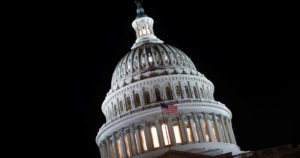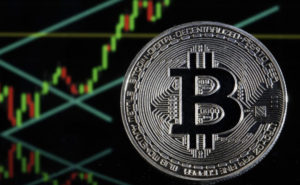
New Year Briefings: 2023
In 2022 we observed lower valuations across global markets and asset classes. The catalysts of this dynamic can be attributed to the fears of global recession, higher global inflation, strengthened USD, and higher cash rates. As these dynamics continue to build through the end of 2022, investors will continue to be faced with nuanced headwinds throughout 2023 but will have

US Macro Crunch Time
In our beginning of the year outlook for 2022 we had pure conviction that US consumer price levels would remain elevated with reduced acceleration (relative to 2021), and the supply chain crisis would assume to ease thought this year. Plainly, we still stand on our conviction. We did estimate that we would see tightening labor conditions within the US economy

Credit Market Mania & Inflation
As the recent developments of financial markets playing accordingly to our initial projections, such as the 14% drop in the S&P 500, the 24% drop in the NASDAQ 100, the 9.7% drop in the Dow Jones, the Fed’s moderate normalization policy, and unwinding liquidity in the digital asset class, the commodity markets outperformed our consensus. We attribute this performance in

Geopolitical Gumbeaux
The 1st quarter of 2022 have presented us with some interesting dynamics that will ultimately change the global economic outlook for all going forward. Many of the dynamics have lied under the umbrella of geopolitical tensions, economic (incl. energy) policy shifts and “normalizations”. We will uncover and contextualize the complex dynamics and present you with potential macro headwinds and tailwinds

Rising Mortgage Rates & The US Housing Market
Given that the Federal Reserve seeks to hike interest rates in 2022 from their historical lows, it is inherent to many consumers and lenders that Mortgage rates will subsequently rise. When taking a look at relatively historical data on mortgage rates (Figure 1), we can note that the current environment of mortgage rates are a simple reflection of the Fed

New Year (2022) Briefings
As 2021 comes to an end, we are left with many reflective dynamics in regard to the global economy and the financial markets. From growth-optimism, reflation, inflation, and now liquidity variance, 2021 has set us up with an extremely pivotal 2022. Pivotal Policy The global monetary policy environment will be a key focus in 2022, as various leading economies seek

Chinese Credit Crunch
Home of some of the most monumental infrastructure feats, such as the Three Gorges Dam, the Shanghai Tower, the Tianhuangping Pumped Storage Power Station, and the unrivaled high-speed rail system, China is a benchmark competitor within the world of infrastructure. Strategic Growth vs. Fiscal Responsibility In the midst of a political battle within the US (China’s biggest economic and geopolitical

Debt Ceiling Dynamics
As the US Senate failed on Monday (09/27/2021) to advance on suspending the federal debt ceiling, there is now an ample risk that the government will have a partial shutdown, and or the inability of the government to pay its bills, according to Treasury Secretary Janet Yellen. This subsequently poses a risk of a trajectory leading to a default on

Time for tapering or tightening?
The talks surrounding a tapering policy from the Federal Reserve warm up again as Individuals such as (not limited to) West Virginia’s Senator Joe Manchin, the Federal Reserve’s own Christopher Waller, and Richard Clarida have all deposited their 2 cents in regards to the Federal Reserve’s impending policy change. It’s about the jobs! As the press release from the most

Post-COVID Oil Outlook
As global oil demand, and subsequently, consumption begins to recoup, there are many questions about the future of oil in terms of capital markets. Many investors remain weary as to if the infamous cyclical sector will be a positive attribute to their portfolios. Demand-Pull Dynamics With global oil demand on its way back to “normal” levels: EIA: “U.S. gasoline consumption

Liquidity-Mania 2021
(03/08/2021) “The Federal Reserve Board on Monday announced it will extend its Paycheck Protection Program Liquidity Facility, or PPPLF, by three months to June 30, 2021. The extension will provide continued support for the flow of credit to small businesses through the Paycheck Protection Program, or PPP”. https://www.federalreserve.gov/newsevents/pressreleases/monetary20210308a.htm The financial markets have seen the reflation trade make a comeback with

“Bitcoinomics” 101
Narrated as “retail-mania”, the financial world has seen its fair share of oddities in the recent months such as the short interest exploitations on equities, liquidity in historic excess, the reflation trade debate, and the elephant in the room: cryptocurrencies, and in particular, Bitcoin. As Bitcoin has exceeded above $50,000, many investors seemed to be enticed by the assets performance

New Year (2021) Briefings
Happy New Year! As many investors scramble to find the new thematic and dynamics that markets will bring following the US election, many may find themselves thinking too hard. With systemic risks that are weighing on price discovery, such as rising COVID cases across the globe, deflationary risks (as we warned you about in: https://gumbeauxcapital.com/growing-deflationary-risks-within-the-economy/ ), insolvency risks, and the impending global

A Backtrack on the SPACs
Market Lemonade You may have heard the popular saying, “When life gives you lemons, make lemonade, and as 2020 is coming to an end we can look back and say that 2020 has provided us with plenty of lemons… an entire Amazon fufillment center of lemons at that. The same cannot be said for the (speculative) financial markets as global

Growing Deflationary Risks Within the Economy
It has been nothing short of a war between economists over if we will see out hyperinflation or deflation in result to the COVID-19 economic recession, and the aggressive monetary policy enforced by the Federal Reserve. Many argue that the quantitative easing, or “QE” performed by the Fed will ramp up monetary supply, and subsequently conjure hyperinflation. Limitations to QE

